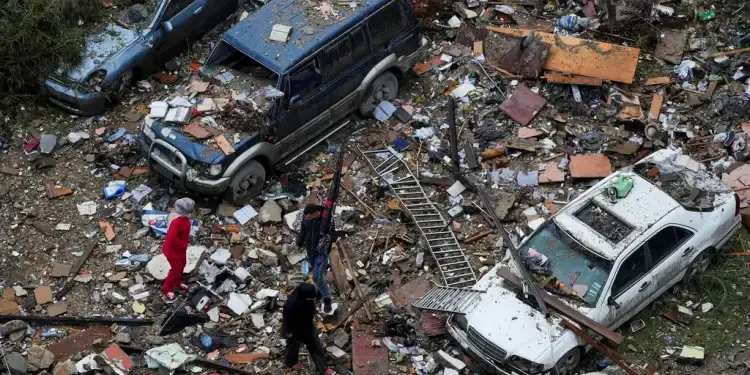Israel announced a ceasefire with Lebanon, after two months of intense fighting with Hezbollah, extended by more than a year of border tensions.
Israeli Prime Minister Benjamin Netanyahu said the agreement would be subject to the approval of the security firm in the evening of November 26. According to him, the duration of the break will depend on the evolution of the situation in Lebanon, while stressing that Israel would retain “freedom of military action” in the event of violations of the agreement by Hezbollah.
The agreement provides for the withdrawal of Israeli troops and Hezbollah from southern Lebanon, where the Lebanese army will take control, under the supervision of an international committee to guarantee compliance with the Truce. Lebanese Prime Minister Najib Mikati called on the international community to intervene quickly to ensure the immediate implementation of the agreement.
Israeli strikes recently intensified violence in Beirut, killing several people, and the Israeli army has reported projectile fire from Lebanon to Israel as well as operations in southern Lebanon and in the Litani River region. This ceasefire comes after more than 3,750 dead in Lebanon, according to the authorities, and more than a million people moved by fighting.
Subject to intense international pressures, Israel has accepted a stopping of the fighting, but laid down its conditions. Israeli Prime Minister Benjamin Netanyahu seems to want to use this break to consolidate his control over the Gaza Strip and continue his genocide in the region. Iran also remains a strategic objective for Israel, in a context of persistent geopolitical tensions.
Hezbollah, for its part, said that the Truce depended on the Israeli position. The Lebanese group also reaffirmed that it would not submit to the Israeli conditions and that it would continue to fight on the ground. Naïm Qassem said that its organization would not allow Israel to impose its conditions and that, in the event of Israeli strikes, responses would be carried out, with a potential target in Tel Aviv.
International discussions, led by the United States, France and Germany, aim to apply the UN resolution 1701, which calls for the end of hostilities and the deployment of the Lebanese army in the South. However, the situation remains fragile, and the application of the agreement will depend on compliance with commitments by all parties.








